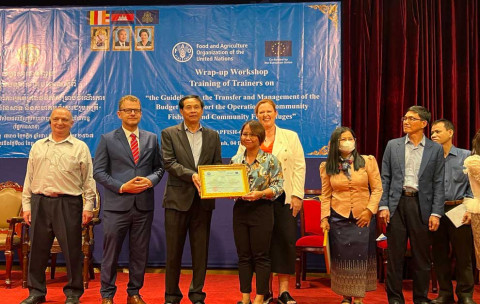
Cambodia approved over 2,600 construction investment projects in the first three quarters of 2023, marking a 19% decrease compared to the same period in 2022. Heng Chivoan
Cambodia approved over 2,600 construction investment projects in the first three quarters of 2023, marking a 19% decrease compared to the same period in 2022. Investment capital and construction space, however, have surged by over 100%, as per the Ministry of Economy and Finance.
The ministry’s report indicates that from January to September 2023, the Ministry of Land Management, Urban Planning and Construction sanctioned 2,598 projects, spanning 11.99 million square metres with a capital investment of $4.960 billion.
This represents a decrease of 577 projects compared to the same period in 2022, but construction space and financing have increased by 146% and 153%, respectively.
For September 2023 alone, 231 projects were granted construction permits, encompassing 427,582sqm and a capital investment of $202.3 million. In comparison with September 2022, there was a 36% decline in project numbers, a 46% decrease in construction space and a 32% reduction in investment.
Of the approved projects in September, 194 were housing projects (including 188 gated communities known locally as boreys), 18 industrial, 11 commercial and 7 tourism-related buildings, three investments and one public construction project.
The ministry noted that economic activity during the month was relatively stagnant, influenced by global inflation, which adversely impacted construction activities.
Chiv Sivpheng, general manager of the Cambodia Constructors Association (CCA), said the quiet in the sector is due to the uncertainty of global economic growth and politics.
He noted that the industry’s recovery is contingent on the revival of sectors like trade, tourism and real estate, and therefore generally takes longer to rebound.
Sivpheng highlighted that the construction sector is currently dominated by local residents, while large and high-rise building activity has been subdued since the onset of Covid-19 in early 2020.
“The construction sector still needs more time to recover. When [the economy] is active, the demand for office buildings, shopping malls and entertainment venues will increase, and then construction will increase,” he said.
The current government has continued some measures from the sixth mandate to support the construction and real estate industry.
These include delaying the implementation of package tax payments, extending the period for remittance, postponing the execution of capital gains tax, exempting stamp duty on the transfer of ownership or possession of houses valued at or below $70,000, prompting financial institutions to restructure loans and delaying decisions on the obligation to submit financial statements.
In 2022, the land management ministry approved 4,275 projects, a slight decrease of 28 from 2021, with a total capital investment of $2.968 billion, a 46.8% decrease. Of these, 3,768 were housing projects, representing 88.1% of the total requests, an increase of 48 projects compared to 2021, and included commercial, industrial, tourism and other projects, as per the finance ministry.




















